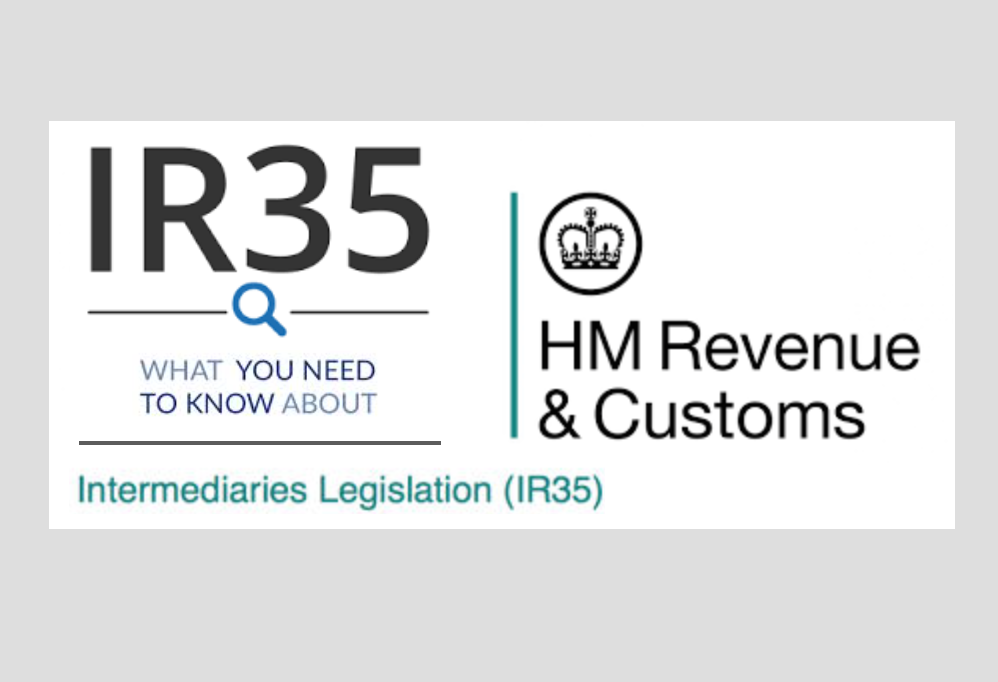
26/08/2017
The On-Going Impact of IR35 across Government Departments
August 2017
IR35 is the short name used for the 'intermediaries legislation', which is a set of tax rules that apply to you if you work for a client through an intermediary – which can be a limited company or “personal service company” which is how many contractors operate. The IR35 legislation specifically challenges those people who supply their services to clients via their own company, often known as a 'personal service company', or a limited liability partnership, who, in the ever watchful eyes of the HMRC, should be classed as 'disguised employee'.
What we are observing so far:
- NHS Locum doctors not turning up for their shifts, nurses not knowing whether they should turn up for their shifts and even IT contractors working on HMRC’s own projects abandoning those projects in droves having been deemed by HMRC to now be caught by IR35 (Ref 1);
- HMRC still thinking that contractors will blindly accept the new conditions of having the same amount of tax deducted as regular employees without any of the statutory benefits (Ref 1);
- The HMRC IR35 Assessment Tool is a waste of time, as employers are not taking any notice of it;
- Employment Agencies now having an extremely difficult time filling positions in certain sectors where contractors are trying to avoid (Ref 1);
- The Public Sector is struggling to find good temporary staff as contractors turn their back on work or demand a sizeable (20%+) pay increase (Ref 2);
- Certain Government Department still enforcing an ‘illegal’ blanket type decision for all their contractors (Ref 1) or have taken a decision to “only engage works who, from the 6th April 2017, are on the payroll of their supplier”;
- Rates decreasing especially for those inside IR35 and a lower calibre of candidate (without all the necessary skills, experiences or clearances) now being brought in just to fill the gaps;
- Sharp practices being employed by agencies promising an outside IR35 contract, only for the contractor to be deemed inside IR35 when they start or worse still after they have started;
- An explosion of umbrella companies with a wide difference in approaches and reputations (try only to use full members of FCSA) (Ref 1);
- Niche skills have now moved out of the Public Sector and are now predominantly in the Private Sector, meaning the Government Departments are now contracting in ‘Specialist Skills as a Block Service’, which is costing them a significant amount more than they were ever paying before;
- We are seeing a slow bleed of contractors from the Public Sector as they find better paid contracts elsewhere or opportunities outside IR35 in other Government Departments;
- We are seeing a very worrying development in terms of Government Departments trying to keep contractors within IR35 if they move roles (even outside that specific organisation) and staff encouraged to report leaving contractors to HMRC to try and keep them inside IR35;
- We are seeing no movement by the Senior Civil Servants to fix the blanket bans, they see to be ignoring requirement to perform case by case assessments of their contractors;
- We are seeing no movement from MPs to address this issue, except to state that “the aim of the recent changes is to ensure that these workers pay broadly the same taxes as Government employees, when they are providing services to a Government Department”, however totally ignoring the issue of pensions and other rights that the Government employees get;
- We are seeing no movement to challenge the IR35 legislation, as HMRC and The Treasury still maintain that it is an issue of tax avoidance, ignoring the bigger issues affecting the UK economy and the benefits that temporary contract labour bring to the competitiveness of the UK. Forcing employers to take on full time employees is a backward step, especially when the rest of the world still enjoys the benefits of a flexible workforce;
- The true cost of the IR35 legislation is not being reported, being under played or being hidden behind other department activities;
- The ambition for Britain to become the global place for scientists, innovators and technical investors is about to be put at risk as the Government now target their sights on implementing IR35 into the Private Sector;
- Contractors are now beginning to leave the UK in large numbers that major improvement projects are now being put at risk and the Government is not creating a favourable condition for the continued development of the developing SMEs to be competitive on the world stage;
- You will begin to see companies start to off-shore staff/businesses, other companies will be rendered bankrupt, the reduction of companies to engage temporary staff as projects being delayed and cost more to the tax payers, companies start to see that dealing and working in the Uk is just too difficult and walking away from potential opportunities, Government Departments having to hire second rate or even third rate workforces and the UK loosing even more worldwide competitiveness. What you will not see (unless there is a change of heart) is Government Departments employing a simple policy of not employing contractors who were official public servants for at least 2 years after they resigned/took early retirement (just like they do in the US); Government Departments actually performing a case by case evaluations which they should be legally doing; Government Departments being fined for implementing blanket policies or any public servant being fired or taking responsibility for this flawed piece of legislation;
- HMRC expected to raise an addition £220 million per year in NI and £80 million in tax (Ref 3), however the figures for administering the tax and cost of additional investigations has not been disclosed. The cost of delayed or cancelled Government Programmes will run into the billions of pounds, but nobody is counting this figure. As the UK enters Brexit and UK businesses start to feel the pain of economic upheavals, this is not the ideal time for a major tax reform that serious affects the competitiveness of UK businesses, impact our future growth and prosperity for our future generations. It will be years before the full and true impact of the IR35 legislation will start to be understood, however whatever the true figures will be, one can be sure that the UK will be in a far worse position as a result of attempting to gain a few extra hundreds of millions pounds in the short-term. Another case example of perceived short-term gain but massive medium term and gigantic long term negative impacts for our future generations.
References
1. https://www.workingmums.co.uk/impact-ir35-changes-contractors-public-sector/
3. https://en.wikipedia.org/wiki/IR35
